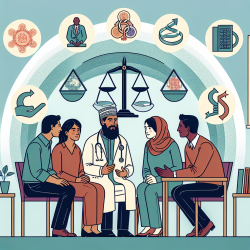India's battle against tuberculosis (TB) is a challenging one, with the country accounting for a significant portion of global TB cases. While efforts are being made to engage the formal private sector in the National TB Elimination Program (NTEP), informal healthcare providers (IPs) remain underutilized despite their critical role as primary care providers in many communities. A recent exploratory study from West Bengal sheds light on the barriers and facilitators affecting IPs' engagement in the NTEP.
The Importance of Informal Healthcare Providers
Informal healthcare providers, often the first point of contact for healthcare in rural and underserved areas, play a vital role in TB care. This study highlights their position as trusted community members who provide accessible and acceptable healthcare services. Their deep-rooted relationships with patients enable them to identify presumptive TB cases early, which is crucial for effective disease management.
Barriers to Engagement
The study identifies several barriers that hinder IPs' full participation in the NTEP:
- Lack of Role Clarity: IPs often lack clear guidelines on their roles within TB care, leading to confusion and inconsistent practices.
- Competing Tasks: As primary breadwinners, IPs are hesitant to allocate time to NTEP without adequate compensation.
- Quality of Care Concerns: Both IPs and formal providers acknowledge gaps in knowledge and training among IPs, impacting the quality of care provided.
- Distrust Between Systems: There is an expressed distrust between formal and informal systems, which can impede collaboration.
Facilitators for Improved Engagement
The study also identifies facilitators that could enhance IPs' engagement:
- Evolving Recognition: The growing recognition of IPs' importance within the health system encourages their involvement in formal programs.
- Inclusive Incentive System: Providing financial incentives for referrals and other roles can motivate IPs to participate actively in TB care.
- A Willingness to Collaborate: Both IPs and formal providers express a desire to work together, recognizing each other's contributions to healthcare delivery.
The Path Forward
This study underscores the need for clear policies that define IPs' roles within national health programs. Training programs tailored to enhance their knowledge and skills are essential. Additionally, integrating IPs into digital patient management systems could streamline referrals and improve tracking. Addressing these factors can significantly strengthen the engagement of IPs in India's fight against TB.
If you're a healthcare practitioner looking to improve your skills or contribute to this field, consider exploring these findings further or conducting your own research into how informal healthcare providers can be better integrated into national health initiatives.










